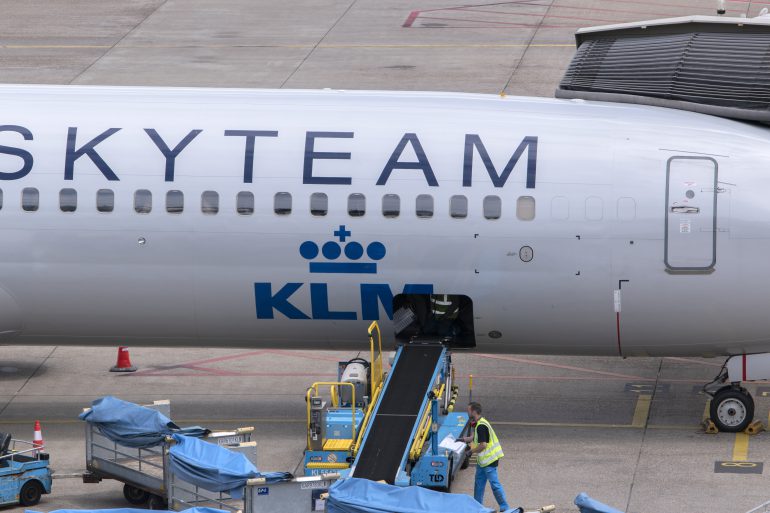The frightening scenes of four-hour long waits and queues that snaked around the cavernous halls of Amsterdam Schiphol from last summer may be over – for the most part – but the chaos isn’t over yet. Several facets of the complex disaster that was the summer of 2022 at Schiphol Airport have been solved, but there are still problems with the baggage handlers – a problem that may not be as easy to solve.
A little backstory: the airline and travel industries were hit particularly hard by the Covid lockdowns. Even when general restrictions were lifted around the world, people were still cautious about traveling. Then after Covid, when just about everything opened up, many countries and industries suffered from severe personnel shortage. Among the affected industries was the already hard-hit travel industry, and at the frontend of that industry are the people who work at the airports.
Across the world, but particularly at Schiphol Airport, long lines and extended wait times began to form. There were shortages in security, immigration and general airport personnel, and there was a large shortage of baggage handlers. Many airport-related employees had found new employment when the airports were closed during Covid, and the low wages, hard work and job uncertainty made it unattractive to return to the airport. Especially baggage handlers jumped ship, having complained about their working conditions long before Covid. After all, finding a better-paying job that is less demanding isn’t difficult after Covid.
To remedy the chaos, a huge hiring campaign was initiated. Most of the sectors – security and general airport personnel – were able to staff up and meet the demand of the busy airport. But not the baggage handlers; this is the sector that is at the heart of the continuing chaos at the airport. Looking a bit further into the problem, it’s not difficult to understand why.
Other than the employees of the individual shops and restaurants, most of the staff at the airport is hired by and works for the airport itself. With strong ties to and backing from the national government, and its financial resources, solving the staffing problem was a relatively simple task. After all, being the Netherlands’ only world-scale international airport for people and cargo, Schiphol facilitates and contributes significantly to the Dutch economy.
However, staffing for the baggage handlers isn’t as easy, since they work for one of six individual baggage handling companies, which in turn are contracted by the airlines. The larger airlines usually have their own in-house handlers. It’s up to the baggage handling companies and airlines to hire more handlers; if those companies ask for government assistance, it’s an entirely different ballgame than a major airport asking for the same thing.
Compounding the problem is the fact that baggage handlers in general, around the world have long been asking for better wages, less strenuous work and better benefits. This makes the current problem at Schiphol – and indeed many other airports worldwide – larger than the fallout from Covid and the subsequent general personnel shortages. The problem lies with the job itself; with the amount of work versus the low pay these positions receive; with the strenuous working conditions, including the number of hours worked; and with insufficient benefits and bonuses.
Thus, without a careful solution at the root of the problem, the bottlenecks at the airport, and indeed all airports, will continue. The issue may not be easy to see since the long lines and four-hour waits are a thing of the past summer, but the persistent problem of the baggage handling may create more serious issues downstream.
Perhaps it’s a good time for airlines, baggage handlers, airports and governments to completely overhaul the baggage handling side of their operations, but steps in this direction have not been taken as yet.
Written by Marla Thomson
